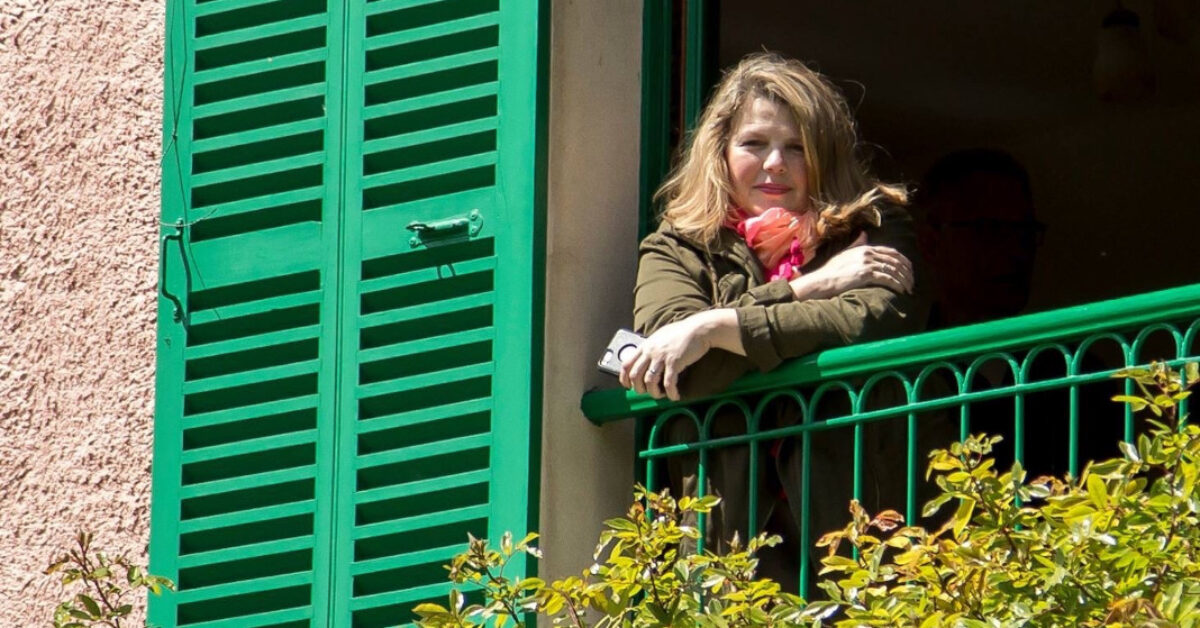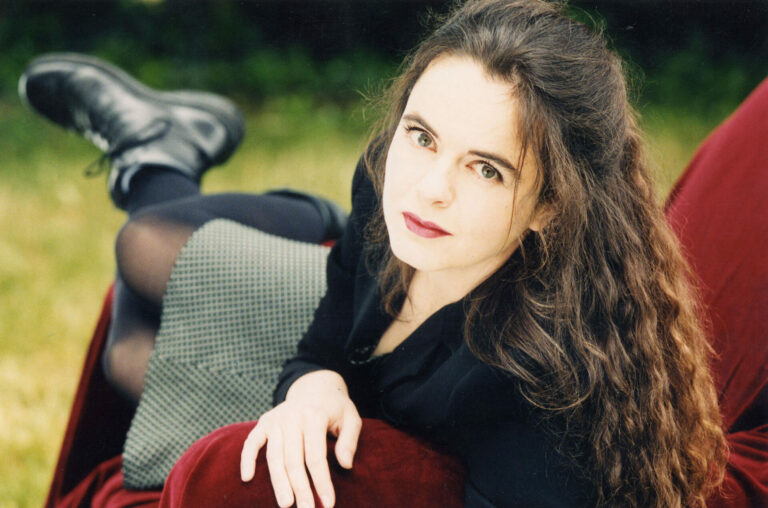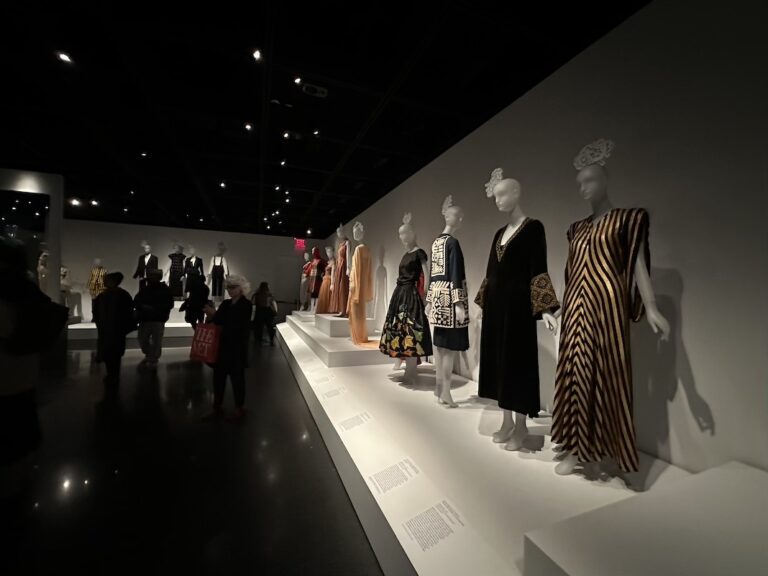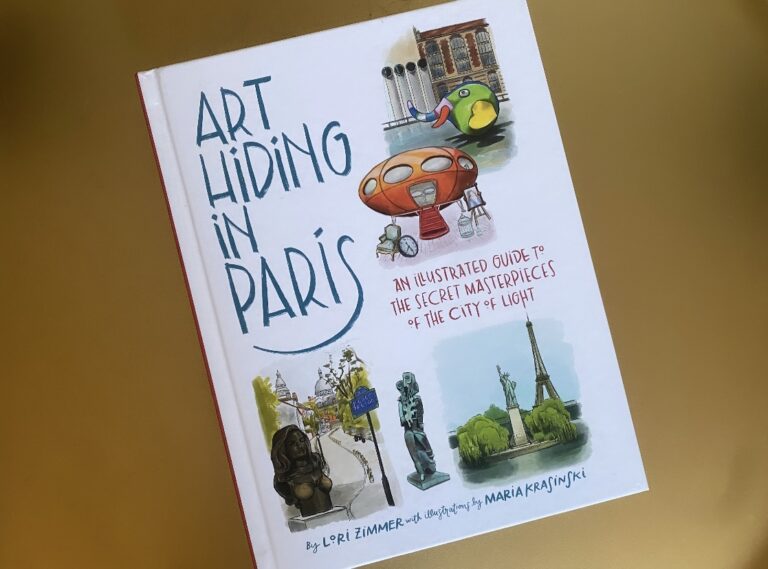As far as I can remember, I’ve struggled with weight. Not because of my actual weight, but because of what others had to say about it. “A second serving? Are you sure?” or, “Summer is coming, I would not have wine if I were you.” Going to the doctor for an earache typically resulted in a new diet suggested by my PCP and no treatment for the actual earache. It was as if everyone and everything were on a mission to make me slimmer. I grew up in France assuming it was my fault and that I was of lesser value because I was carrying around a few extra kilograms.
When I was 26, I moved from Paris to the U.S. That was more than a decade ago. I still remember– to this day– my very first annual medical checkup in America. Without realizing it, I had come prepared to have a talk about my weight. Simply because it always had been this way at every single medical appointment I went to up until then. When I mentioned my weight, my doctor cut me off and said I was healthy. And believe it or not, it was the very first time someone had told me that I could be healthy and overweight. This revelation challenged the prevailing narrative and made me question the weight-based judgments that had plagued me for years. (Editor’s note: Medical weight bias in the U.S. is well-documented, and plus-size individuals have been shown to receive lower standards of care.)
What it’s like to be Plus-Size in Paris
I recently came across Erin Zhurkin’s debut novel, entitled Plus Size in Paris. Plus Size in Paris came out on May 17, 2023, in English. After submitting the novel to traditional publishing houses who wanted the story to be more like Emily in Paris, Zhurkin decided to self publish it and preserve the DNA of her story. It immediately piqued my interest. When one thinks of Paris, images of a model-thin Emily in Paris and the glamorous Paris Fashion Week often come to mind. Bestselling books like French Women Don’t Get Fat resound loudly. Maybe a few remember that back in 2017 there was another book on this subject called On ne naît pas grosse (“We Are Not Born Fat”) published by Goutte D’or Editions, and written by Gabrielle Deydier, a French woman who denounces Grossophobie in France. Zhurkin’s book is fiction, however, whereas that was memoir.
Zhurkin’s book tells the fictional story of Abby Allerton, an American Instagram influencer who receives an invitation to Paris Fashion Week. She is plus size. When she gets there, she is confronted with extreme body shaming, starting with a man asking her, “Since when is haute couture for fat women?”
Zhurkin is using fiction to get beneath the surface of a reality that is rarely discussed: the real challenges faced by plus-size individuals in the so-called city of love. From fatphobia, to pressure to conform to societal beauty standards, being plus size in Paris can be complicated and difficult.
Her novel, surprisingly, is not a sad one. Instead, it takes a refreshing journey into empowering Abby to be brave enough to find friendship, and to take a stand against fatphobia and challenge stereotypes around larger women.
I sat down with Zhurkin recently and, as I shared some of my own story, we talked about hers and what in her life inspired the book. Today she lives in Korea, but she has lived on almost every continent.

Erin Zhurkin is a serial expat. She is what some call a “trailing spouse,” meaning she is not the one whose job is regularly relocating the family around the globe: her husband, a Renault executive, is. In January 2015, Zhurkin, her husband, and their three daughters moved to Paris. But the magical city she recalled having visited in the past was different. “I was going up and down Parisian streets with my kids. I would go to cafes as a plus-sized woman with my double stroller,” she recalls. “I always felt like I was in the way, I could not get comfortable anywhere on these tiny little tables and chairs in the cafe. During the first year I lived in Paris, I never did feel comfortable,” confides Zhurkin. “I realized I needed to tell this unusual story of Paris, the one of a plus size woman being judged for who she was.”
Even though the novel is definitely fiction, Plus Size in Paris is based on Zhurkin’s personal experience of living in Paris. Her sensitive observations told through the lens of her main character, Abby Allerton, a social media content creator, shed light on the pressure to conform to unrealistic beauty standards, and the struggle for acceptance faced by plus-size individuals everywhere, but especially in Paris. The City of Lights is not only the birthplace of the modern fashion industry, but it is also a very expensive city to live in, making it exclusive and mostly accessible to the wealthiest French citizens.
In Paris, Zhurkin says, “I felt like there was just a standard that just seemed really unattainable to me.” Zhurkin insists on the fact that her observations are limited to Paris, and that she realizes it may not reflect the whole country of France. “It’s funny because as an expat, you tend to gravitate towards those that are like you. I made a few friends who were American women, and even some who came from other European countries. And we would talk about this impossible-to-reach beauty standard.”
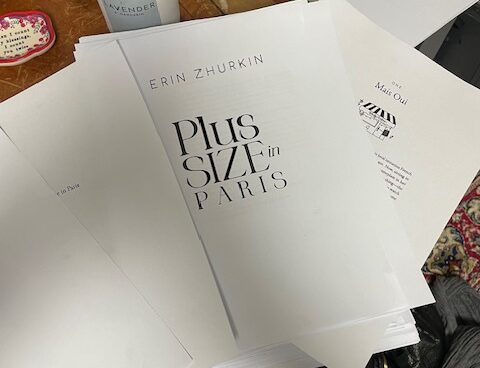
Fatphobia in France
From her own experiences and conversations with friends, Zhurkin quickly realized that even everyday places like pharmacies would subtly perpetuate fatphobic stigmas, offering her weight-related products instead of addressing her actual concerns. In Plus Size in Paris, Abby walks into a Parisian pharmacy looking to treat a UTI. After some back-and-forth with the pharmacist in order to explain her issue, she is offered weight-loss remedies and pills. “Something similar happened to me with cellulite cream, and no! That’s not why I came in!” explains Zhurkin. Another all-too-common real-life example which made it into the book is that of the French elevator. In this moment in the book, Abby, Justine, and an older Parisian gentleman are trying to fit into a Parisian elevator. Zhurkin writes, “The elevator arrives. It’s the size of a tiny kitchen broom cabinet encased in a cage-like structure. The elevator buzzes. A deafening sound that this elevator is going nowhere. The older gentleman says, ‘Pardon, the lift won’t move. I think your big size is too heavy for the lift.’ He looks directly at Abby. It’s official. He is dissing her.”
Zhurkin actually started writing this novel at the beginning of 2016, only a year after moving to Paris with her family. Initially she thought it should be a screenplay, but the Netflix show Emily in Paris came out soon after and Zhurkin was in shock: “It was my story except mine was more real, more authentic!” And instead of writing her own story, she thought fiction would give her more creative license. “Talking about body positivity and fatphobia can be quite heavy in some ways. It was important for me to keep it fun and light, as well as timely. When I first grasped the storyline of Abby being an influencer, I was going to have her be a part of Paris Fashion Week. Her going to the epicenter of fashion and saying, ‘Hey, you need to be more inclusive for all women and all body types.’ And I thought, ‘Well, that’s pretty powerful to go to the center of fashion in the whole world and have that storyline be about that.’”
Bringing Plus-Size Models to the Haute Couture Runway
Back in 2017, following Spain’s lead, France attempted to make runways and models represent a more inclusive image of women. Part of the impetus was to combat eating disorders by banning “unhealthily thin” fashion models from the runway. Back then, models had to provide a doctor’s note about overall health, and were forced to share their BMI (Body Mass Index) in order to walk. Similarly, French ads were forced to mention it when photos were touched up in order to limit the impact of unrealistic images of bodies on French teens and young adults. (Editor’s note: Though well-intentioned, this approach still comes with an implicit judgment that some women’s bodies are “acceptable,” while others are “unacceptable,” potentially punishing models for being too thin by not allowing them to work, when they have long been influenced by an industry that encouraged eating disorders. Many doctors are poorly trained to provide care for disordered eating, so the onus is still on women to “fix themselves” on either end of the weight spectrum. BMI is also recognized as a highly imperfect indicator of a healthy weight.)
While this legislation attempt is a step in the right direction, it does not tackle the inclusion of overweight people who remain sidelined by society. When the winter 2023 Paris Fashion Week ended, The New York Times published an interesting story about the lack of diversity on the runways. Felicity Hayward recently explained in Glamour that the body inclusivity trend in Paris seems to be going in the right direction, with the number of curve models going from 33 to 40 (out of 3600 models) between autumn/winter 2022 and spring/summer 2023. (“Curve” is an inclusive term applied to models anywhere between straight-size and plus-size, encompassing mid-size and “inbetweenie” models as well.) The progress remains, obviously, very slow.
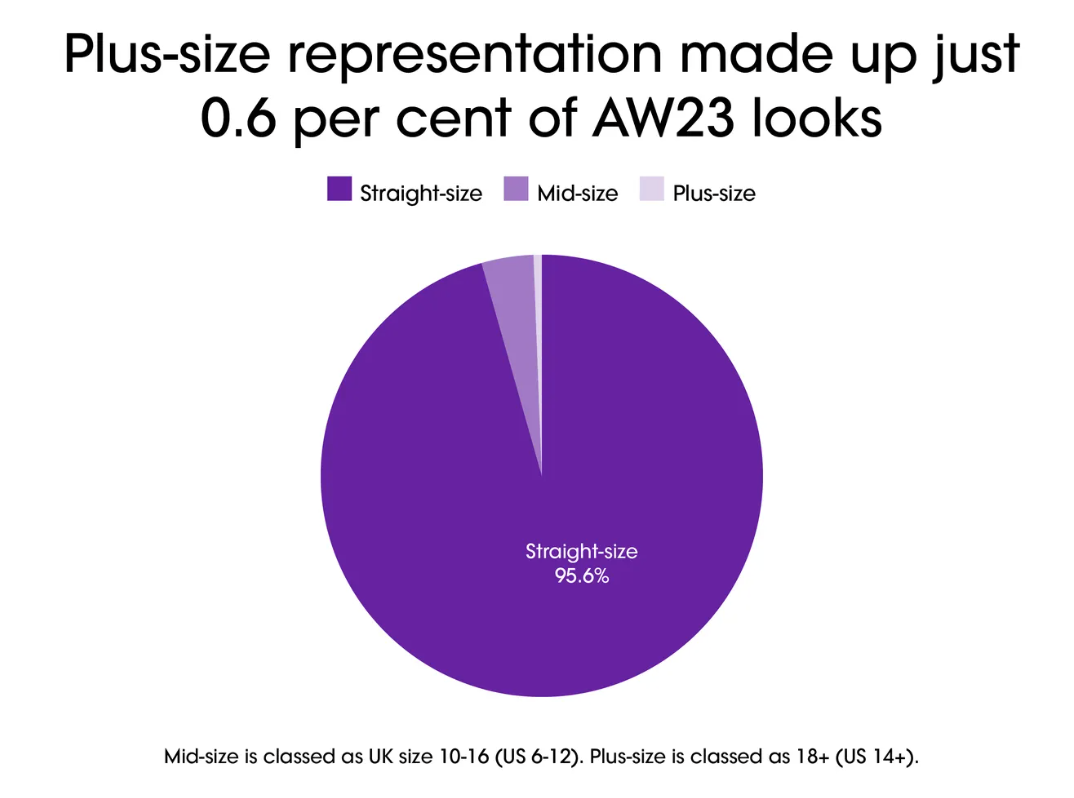
Erin Zhurkin’s relationship with Paris, a city she had always loved, shifted a bit when she was confronted with the pervasive challenges of systemic fatphobia. While acknowledging her limitations as a non-French person, Zhurkin reflects on her time living in Paris and on the impact it had on her understanding of the city’s culture. She recognizes and admires the historical reputation for elegance, beauty, and rich cultural experiences that define Paris.
Grossophobie
Fatphobia, also called “Grossophobie” in French, refers to the social bias, discrimination, and prejudice against individuals who are perceived as overweight or obese. While fatphobia in France shares similarities with fatphobia in other countries, it also has unique cultural manifestations. A report from 2017 showed that “only” 15.3% of the French population is obese, while that number reached almost 40% in the US. As the Washington Post pointed out, “The predominant view in Paris is that you are born thin, and if you do your job right, nothing will ever change.” Zhurkin believes efforts to foster inclusivity within Parisian society need to continue, and that the fashion industry and haute couture fashion shows are a prime example of where changes can and should be implemented. Recognizing the global influence of these fashion shows, Zhurkin emphasizes the importance of showcasing diversity and inclusivity: “A shift in mindset needs to happen, one where inclusivity is not a temporary trend to follow but becomes a permanent aspect of Parisian culture,” emphasizes Zhurkin. “Inclusion starts with those situations like the haute couture fashion shows. It’s a worldwide stage. So people around the globe are watching what’s happening. It just should be like: this is what we do. Full stop. This is not a one-off thing we do because we need to make sure we’re in the trend of what’s happening.”
While inclusivity of all body types is making a shy debut on the runways and in Western society as a whole, “In honor of Karl” was the theme of the 2023 Met Gala. Lagerfeld also was notoriously fatphobic (and likely anorexic himself), mocking the body positivity movement and stating that anorexia was not as dangerous as junk food and television, or that fashion was the healthiest motivation for losing weight. “Do we separate the person from the art or not?” Zhurkin wonders. “I’ll admit that’s a tough one for me because to be honest with you, for me it was one of the most beautiful Met Galas. However, do I think that there should be a glorification of someone like that? No. I mean, he was pretty awful to a lot of different people. Especially about body types.”
While the character of Abby Allerton is an Instagram influencer and also a fashion player, her character is a little more complex than you may think. She is a plus size woman who manages two accounts: “Femme Fatale,” where she posts unidentified images of someone else who meets all beauty standards; and “Plus Size Real,” her “real” account. “I think it’s important when you’re creating characters to make sure the characters are relatable. We all, as people, have our shadows. I wanted Abby to have a shadow as well, which is that even though she’s very empowering in one account about her body and body positivity and things, there’s still this shadow part of herself that hasn’t fully accepted herself either. And so that was why there’s two accounts.” Of course the fact that she receives the invitation to the Paris Fashion Week as “Femme Fatale” creates a lot of drama, as the organizers have no idea that the plus-sized person who shows up is the one behind it.
I loved Zhurkin’s book. But I am left with questions: Did I love it more because I also am a plus-size woman who is French and lived in Paris for a decade? Or was it because I am a citizen committed towards inclusion of all types? I guess it is hard to say since I am both. My hope in sharing Erin Zhurkin’s story– as well as mine– is that it resonates not only with people who suffer from fatphobia but people who– often unconsciously– spread dangerous fatphobic ideas, sometimes without meaning to. It was hard for me to share. But I hope it makes change. For her part, and in an effort to bring more to the important body positivity conversation in France, Zhurkin is hoping her novel, Plus Size in Paris, will be translated into French in the upcoming year.
Order the novel on Erin Zhurkin’s website.
Anne-Fleur Andrle is a Colorado-based freelance writer and podcast producer. She writes regularly for Frenchly and hosts and produces a French Morning show called French Expat, where she documents the journeys of French-speaking expats around the world. She has a weekly curated newsletter with podcasts that she thinks are not to miss.
This article was originally published on June 2, 2023.

